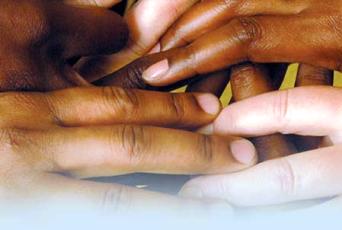The Social Cohesion Summit takes place from 4-5 July in Kliptown, Soweto, under the theme: “Working together to create a caring and proud society”.
The summit, spearheaded by the Department of Arts and Culture, has taken up the challenge to get society talking about the issues and hopefully move towards a more equal and cohesive society.
Its objectives include: to get South Africa talking about the type of country it desires to get the country to think and re-think the values to be upheld as a society to promote social cohesion and nation-building as a pre-condition for a better life to encourage public participation in social mobilisation campaigns to establish a platform for government and stakeholders to work together on concrete ways to extend the freedoms South Africa has already attained
Social-cohesion and nation-building are strongly interconnected
The summit aims to encourage dialogue on contemporary social issues in an effort to help South Africa become a more socially cohesive nation.
Arts and Culture Minister, Paul Mashatile, says:”The summit is an opportunity for South Africans to dialogue among one another about their shared values, their shared aspirations and their shared vision of a united South African nation.”
About 1 000 delegates have been invited to the summit, including leaders of various political parties and trade unions, religious leaders, academics, artists and members of civil society.
Get South Africa talking about the inequality and social exclusion
Reports recently surfaced on the abuse and sexual exploitation of children living with disabilities. The level of corruption in state bodies and government departments across the three spheres of governance is regularly reported on. Post-apartheid South Africa has also seen a break-down in ‘ubuntu’ – a term meaning ‘togetherness’ that was synonymous with the country once called a “rainbow nation.
According to the latest report published by the Happy Planet Index (HPI), South Africa is ranked 142nd out of a 151 countries. The HPI is the first global index on sustainable wellbeing produced by the new economics foundation (nef) in the United Kingdom.
South Africa remains a deeply divided society. Eighteen years into democracy the country is still grappling with deeply entrenched inequalities resultant of apartheid and the rate of transformation has been slow. Centuries of minority rule resulted in formal and systematic exclusion of the majority of the population from full participation in the political, economic, social as well as cultural life and expression thereof.The Department of Arts and Culture (DAC), as the lead government department entrusted in ensuring that South Africa becomes a socially cohesive society, defines social cohesionas the degree of social integration and inclusion in communities and society at large, and the extent to which mutual solidarity finds expression among individuals and communities. When a democratic society is socially cohesive, individuals treat each other on the basis of norms and values of citizenship, that is, with fairness, respect and as equal.According to the DAC, the concern with social cohesion dates back to the days of colonialism. The disruptive nature of that kind of rule characterised by domination and subjugation as well as dispossession and exclusion, destructed and disrupted the order of local communities and society.For a society to be socially cohesive, it has to take into consideration the following important factors;belonging, inclusion, participation, recognition, legitimacy, shared values as well as co-operation.Social-cohesion and nation-building are strongly interconnected. Social Cohesion in a South African context has traditionally been located at a community-based and micro-social level. While nation-building has been seen and understood at a national and macro-social level.A community is cohesive to the extent that the inequalities, exclusions and disparities based on ethnicity, gender, class, nationality, age, disability or any other distinctions which engender divisions, distrust and conflict are reduced and/or eliminated in a planned and sustained manner.”In a socially cohesive country one expects to find citizens actively participating in the joint attainment if shared goals designed and agreed upon to improve the living conditions for all.
Social inequality still existsIt is becoming increasingly difficult to talk about social cohesion in South Africa when the majority of the population feels socially marginalised and excluded. Uneven distribution of wealth and access to services further cements the notion that the country is highly unequal. Glaring poverty and growing inequality juxtaposed with a burgeoning black middle class reinforces the widening gaps between the rich and the poor. Social divides between black and whites, men and women, rural and urban also need to be bridged if the country is to reach its full socio-economic potential.Social exclusion is also reinforced by high levels ofunemployment in South Africa. The country has some of the highest unemployed statistics globally. Unemployment plays a big role in social fragmentation; it is however, not the only factor that leads to this. It is through economic participation that citizens of a country are presented with opportunities of social mobility. Job creation and raising the quality of public education are important in bridging South Africa’s socio-economic divides. In the absence of that there are possibilities of social stagnation which lead to social exclusion.According to the National Development Plan (NDP) factors such as race, gender, geographic location, class and linguistic continue to determine one’s access to economic resources, education as well as work opportunities. Authors of the report note that while society has overcome the deep political schisms of the past, social divisions, economic inequality, poverty and exclusion, however still persist.
– By


